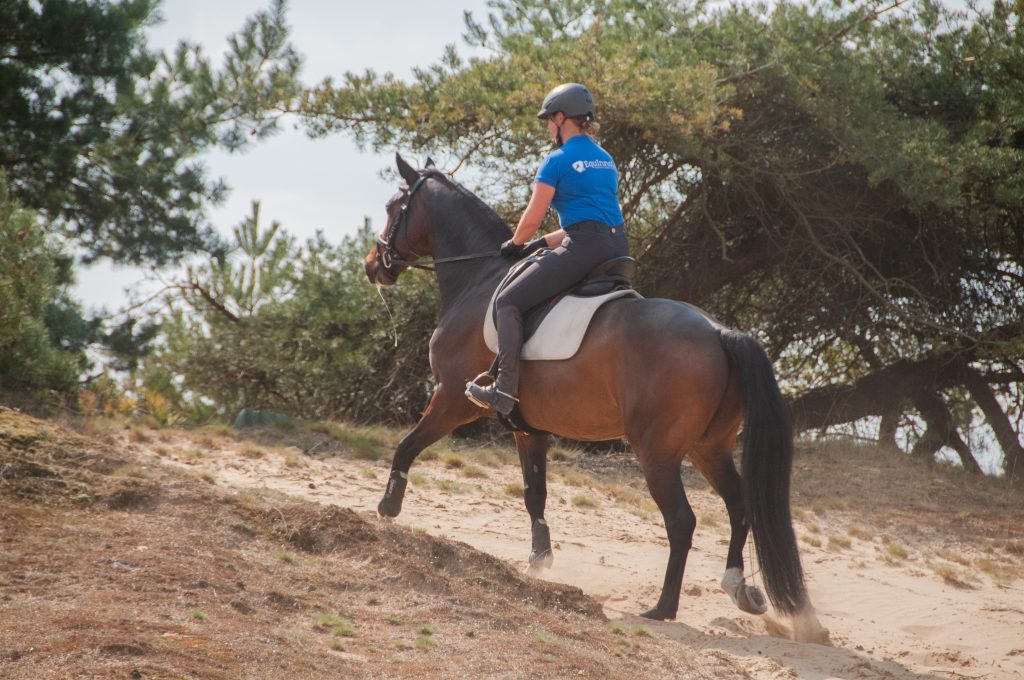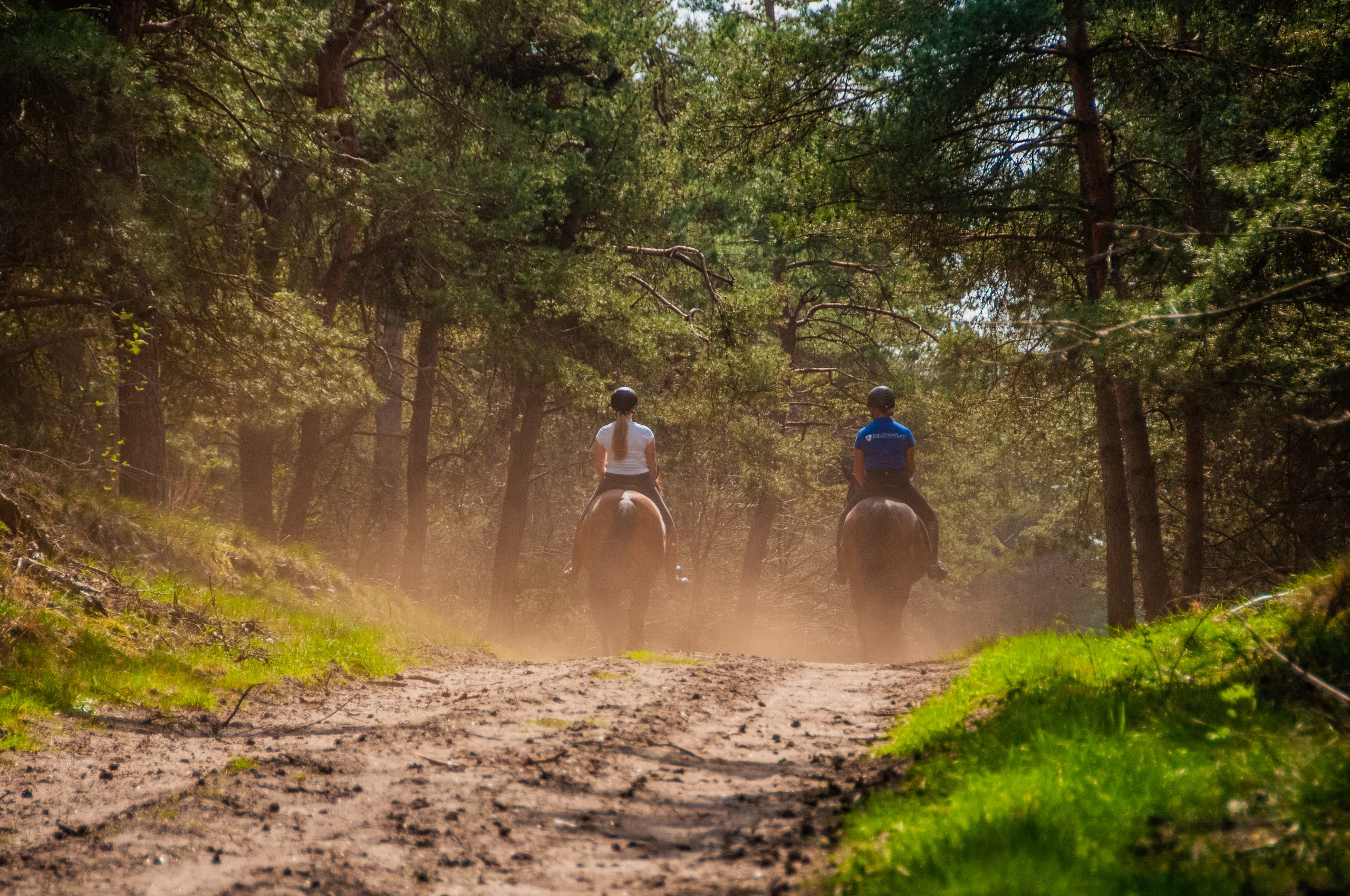Applying a different way of thinking about movement for an optimal development of movement and performance.
This project entails a plan for a universal sports facility that stimulates horse riding from a young age by developing fundamental movement and sports skills without specialisation. Our aim is to develop an equestrian facility open to the public and thereby expose horse-rider combinations to all types of environments, including different types of physical activities, to develop a broad range of skills.
Exercise is good for our health. It helps improve our physical fitness but is also contributes to our mental health. To add, exercise makes people happy. The equestrian sport specifically, has a great contribution to this happiness. Scientific research shows that activities with horses have a positive effect on respiratory function, balance, gross motor functions, muscle strength, coordination, and body awareness. Additionally, there are mental benefits such as less anxiety and hyperactivity, better cognitive skills in children, better social and psychological development of adolescents, less stress and depression, and evidence suggests that the interaction with horses aids relaxation.
We want to make the equestrian sport more accessible to everyone in society and thereby motivate people to exercise more (with horses). Public exercise spaces such as playgrounds and parks play a major role in this. In equestrian sports, such public spaces exist in limited forms, and most facilities are the traditional riding arenas. Our aim is to increase the variety of public spaces for the equestrian sport so that people are able to exercise with their horse in different ways.
To achieve this, we will research the Athletic Skills Model. This model is aimed at talent development and strives to stimulate movement. It is a new concept that is very popular with various sports and municipalities and has proven itself on the basis of scientific and practical research. The emphasis of the Athletic Skills Model lies on maintaining the fun in sports, but the model is also focused on health, well-being, fitness, creativity, and in the case of top athletes: performance in sports. The main principle to achieve any of these aspects is through a broad-based movement education.
We want to apply this different way of thinking about movement to the equestrian sports. The Athletic Skills Model is developed for human athletes and is therefore by definition applicable to the rider. However, for our second athlete, the horse, the model cannot be directly applied. In this project we will take aspects from the Athletic Skills Model such as basic movement skills and make alterations so as to better fit the horses’ needs. Based on this vision we will determine the layout and composition of a public space for the equestrian sport.
We are working together with the Gemeente Midden-Delfland and Stichting Equestrum to develop this so called Horse-Garden.






